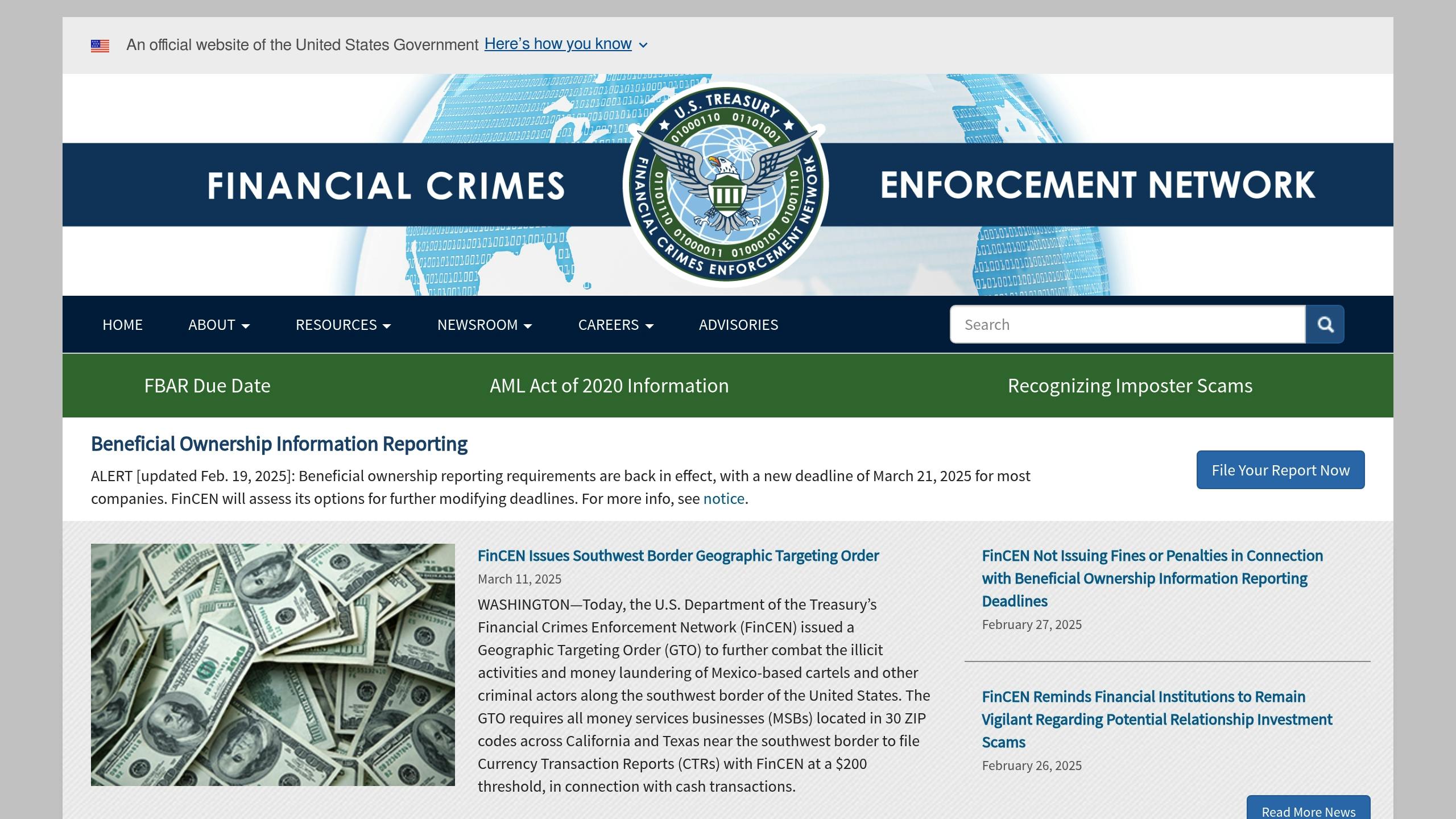Cannabis businesses face unique challenges in payment processing due to federal restrictions, making cashless options critical for compliance, security, and efficiency. Here's what you need to know:
- Key Issues: Credit card payments are prohibited, forcing reliance on cash or alternative methods like ACH transfers and closed-loop systems.
- Compliance: Dispensaries must meet strict federal and state regulations, including FinCEN SAR reports and anti-money laundering (AML) requirements.
- Risks: Handling cash increases theft risks and operational costs (4%-15% per transaction). Chargebacks and fraud are also significant concerns.
- Benefits of Cashless Payments:
- Average non-cash transactions bring in $112 vs. $22 for cash.
- ACH transfers reduce fees (1%-3%) and improve efficiency.
- Non-cash options can boost cart sizes by up to 25%.
Quick Comparison:
| Payment Method | Compliance Status | Key Details |
|---|---|---|
| ACH Transfers | Fully Compliant | Secure, low fees, supports online orders |
| Credit Cards | Prohibited | Not allowed under federal law |
| Point of Banking | Non-Compliant | Risks shutdowns due to card network rules |
| Cash Handling | Traditional | High costs, theft risks |
Switching to compliant, cashless systems can streamline operations, enhance security, and increase revenue while navigating the cannabis industry's complex regulatory landscape.
Cannabis Payments Made Easy: The Best Merchant Solutions ...
Compliance Terms for Dispensaries
Despite state-level legalization, cannabis remains federally illegal under the Controlled Substances Act (CSA). This means dispensaries must adhere strictly to state licensing and operational rules, often under close scrutiny.
Federal and State Laws
In states where cannabis is legal, dispensaries must follow specific state regulations for licensing and operations. This creates a complex regulatory environment, which also leads to detailed reporting obligations under FinCEN guidelines.
FinCEN Rules and SAR Reports

FinCEN offers specific guidance to financial institutions working with cannabis-related businesses:
"Our guidance provides financial institutions with clarity on what they must do if they are going to provide financial services to marijuana businesses and what reporting will assist law enforcement."
Financial institutions must file Suspicious Activity Reports (SARs) for marijuana-related transactions under one of three designations:
| SAR Type | Filing Timeline | Purpose |
|---|---|---|
| Marijuana Limited | Within 30 days | Standard filing for businesses not linked to enforcement concerns |
| Marijuana Priority | Within 30 days | Filed when activities raise concerns under state law or federal guidance |
| Marijuana Termination | Upon account closure | Filed when terminating the business relationship |
If financial services continue, institutions are required to submit a continuing activity report every 120 days. These reporting requirements are complemented by broader BSA and AML obligations.
BSA and AML Requirements
Under the Bank Secrecy Act (BSA) and Anti-Money Laundering (AML) regulations, financial institutions must carry out comprehensive customer due diligence. This includes verifying state licenses, reviewing business applications, and understanding the business's normal operations. They must also file Currency Transaction Reports for cash transactions over $10,000.
FinCEN emphasizes that, "The obligation to file a SAR is unaffected by any state law that legalizes marijuana-related activity." Effective monitoring systems are essential for spotting red flags, such as unusual transaction patterns, which could signal issues like revenue diversion to criminal enterprises or interstate trafficking.
Payment Gateway Basics
Payment gateways act as secure links between dispensaries and financial institutions, playing a key role in processing electronic payments while meeting industry regulations.
Payment Gateway Functions
Payment gateways handle several critical tasks during cannabis transactions. When a customer makes a payment, the gateway encrypts the data and securely sends it to the payment processor. Here's a breakdown of the process:
| Transaction Stage | Gateway Function | Purpose |
|---|---|---|
| Entry | Data Encryption | Safeguards customer information during transmission |
| Authorization | Authorization Request | Confirms fund availability and account validity |
| Settlement | Settlement | Finalizes the transaction and starts fund transfer |
| Logging | Transaction Logging | Keeps an audit trail for regulatory compliance |
These steps are vital, especially as the cannabis market continues to expand. In 2023, the industry brought in over $33 billion, with projections reaching $45 billion by 2025. Additionally, more than 83% of Americans aged 30 to 50 use debit or credit cards for everyday purchases, highlighting the importance of dependable payment gateway solutions.
PCI DSS Rules and Security
Strong security measures are a must after processing transactions. Adhering to PCI DSS standards protects cardholder data and helps avoid costly breaches or penalties. Some key security practices include:
- End-to-end encryption to secure data during transmission
- Tokenization to replace sensitive details with secure tokens
- Multi-factor authentication to control system access
- Routine security audits and updates to address vulnerabilities
Failing to comply with PCI DSS can lead to fines ranging from thousands to hundreds of thousands of dollars per month. To detect fraud, many payment gateways use machine learning to identify unusual activity.
"Ensure that your solution is transparent, and your provider can disclose the name of the sponsoring or acquiring bank that supports your cannabis transactions." - Bankcard International Group
Modern cannabis payment gateways also connect with state seed-to-sale tracking systems and include industry-specific protections. These features help ensure transparency and maintain the high security standards required in the cannabis sector.
sbb-itb-72191b9
Non-Cash Payment Methods
With secure payment gateways simplifying transactions, non-cash payment methods help reduce the challenges of handling cash. Moving away from cash-based systems can cut costs and improve overall efficiency.
ACH and eCheck Processing
ACH transfers allow direct bank-to-bank payments that are both secure and compliant.
Key benefits of ACH payments:
| Metric | Impact |
|---|---|
| Average Cart Size Increase | 25% |
| Online Order Completion Rate | +30% |
| Customer Return Rate | +37% |
| Processing Fees | 1–3% |
| Reduced cash handling costs | ✓ |
ACH payments are just one option. Expanding payment methods can give businesses greater flexibility.
Closed-Loop Systems
Closed-loop systems are another option. These systems comply with regulations, maintain clear audit trails, provide easy-to-follow customer instructions, and integrate seamlessly with existing POS systems.
POB and Cashless ATM Options
Other alternatives, like Point of Banking (POB) systems and cashless ATMs, add flexibility for dispensaries. POB systems are particularly useful for cannabis transactions, although they can face scrutiny from card networks. For example, Visa fined Pueblo Bank & Trust $950,000 for Trulieve's alleged misuse of cashless ATMs.
Data highlights the benefits of these systems. Greatest Hits in Massachusetts saw a 31% increase in average cart size after adopting integrated POB solutions.
| Payment Method | Key Considerations |
|---|---|
| ACH/Pay-by-Bank | Highly compliant; supports online pre-payments |
| Point of Banking | Commonly used but faces card network challenges |
| PIN Debit | Higher risk due to potential card network violations |
Dispensaries must weigh the operational advantages of these methods against their compliance risks. Studies show that consumers spend about 30% more at dispensaries offering non-cash payment options. Adopting secure and compliant systems can significantly benefit both businesses and customers.
Risk Management in Cannabis Payments
Effective risk management is essential for keeping cannabis payments secure and compliant. By combining secure transaction protocols with strict adherence to regulations, businesses can protect both their revenue and customer interests. Beyond selecting compliant payment methods, managing risks ensures every transaction is safeguarded.
KYC and Due Diligence Steps
Know Your Customer (KYC) protocols are a cornerstone of risk management in cannabis payments. These processes verify customer identities, reduce fraud, and ensure compliance with regulations.
| Verification Component | Purpose | Implementation |
|---|---|---|
| Identity Verification | Prevent fraudulent accounts | ID checks |
| Address Verification (AVS) | Confirm billing details | Match with bank records |
| Transaction Limits | Minimize fraud exposure | Set daily/monthly caps |
| 3D Secure (3DS) | Add extra authentication | Real-time verification |
Strong KYC practices help identify discrepancies early, creating a secure foundation for transactions.
Payment Monitoring Systems
Real-time monitoring is key to identifying suspicious activities quickly. Integrating transaction, inventory, and supply chain monitoring enhances oversight and reduces risks.
Key features of monitoring systems include:
- Real-time fraud detection tools
- Integration with inventory tracking
- Verification of supply chains
- Automated reporting for better transparency
"Elite Pay's fraud detection software identifies, prevents and/or reduces fraud payments before they occur. Further protecting your business revenue."
Reducing Chargeback Risks
Chargebacks are a major concern for cannabis merchants due to the industry's classification as "high risk." To minimize these risks, businesses can adopt the following strategies:
-
Clear Communication
Use clear billing descriptors to avoid confusion, and implement chargeback alerts to prevent disputes before they escalate. These alerts can intercept up to 40% of disputes, costing $35-$40 per notification - far less than processing a full chargeback. -
Customer Service Excellence
Providing accessible support and clear return policies helps resolve issues early, reducing the likelihood of chargebacks.
| Risk Factor | Prevention Method | Impact |
|---|---|---|
| Friendly Fraud | Clear billing descriptors | Fewer confusion-based disputes |
| Transaction Disputes | Chargeback alerts | Up to 40% fewer chargebacks |
| Identity Theft | AVS + 3DS authentication | Improved transaction security |
| Inventory Manipulation | Real-time POS tracking | Better accuracy and accountability |
With global online payment fraud expected to surpass $48 billion by 2023, implementing strong risk management strategies is no longer optional - it's essential for protecting your business.
Summary
Understanding key payment methods and ensuring compliance are critical for dispensary operations. Here's a breakdown of payment processing options and their current status:
| Payment Component | Status | Key Details |
|---|---|---|
| ACH Transfers | Fully Compliant | A dependable cashless method that avoids card networks |
| Credit Cards | Prohibited | Not allowed for THC dispensaries under federal law |
| Point of Banking | Non-Compliant | Violates card network rules and risks sudden shutdowns |
| Cash Handling | Traditional | Comes with operational costs between 4% and 15% |
Switching to compliant cashless payment options can increase average cart sizes by as much as 25%.
To ensure compliance, work with specialized payment processors, integrate systems with your POS, inventory, and track-and-trace platforms, and maintain clear, well-documented transaction records. Keeping up with changing laws is also essential to safeguard your payment processes.
"The cannabis industry's evolving legal and regulatory landscape is challenging, especially with bad actors seeking to implement non compliant make-shift payment solutions intended to capitalize off of cannabis businesses seeking efficient and effective cannabis payment solutions." - Brooke Gilbert
Staying informed about developments like the SAFE Banking Act and potential changes in cannabinoid classification is key to staying compliant and growing your business.


